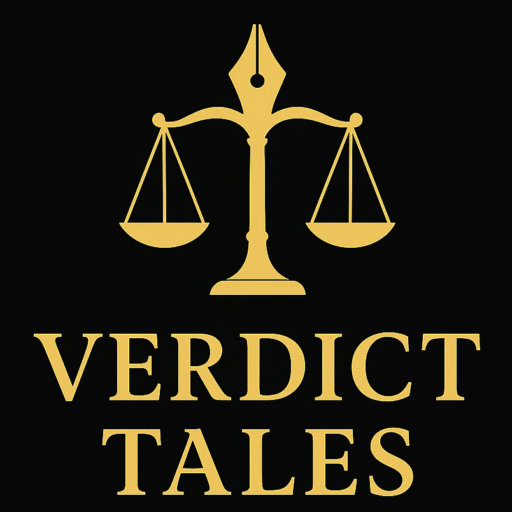Procedural orders of the Insurance Tribunal, not covered by the appeal provisions of the Insurance Ordinance, 2000, can be challenged through a constitutional petition under Article 199 of the Constitution.
Learn how a 2020 Supreme Court ruling clarified the remedies available for challenging procedural decisions in insurance disputes, ensuring fair access to justice.
In Lahore, a dispute over an insurance claim led to a landmark decision that reshaped how procedural orders are challenged in Pakistan’s legal system.
The case began when an insurance company faced a claim filed in 2015 before the Insurance Tribunal in Lahore. During the proceedings, the Tribunal issued an order on March 28, 2018, denying the insurance company the right to file a written statement, effectively limiting its ability to defend itself. Aggrieved, the company filed writ petitions with the Lahore High Court, invoking its constitutional jurisdiction under Article 199 to challenge the Tribunal’s order. The High Court dismissed the petitions on May 30, 2018, holding that they were not maintainable due to the statutory appeal mechanism under Section 124 of the Insurance Ordinance, 2000, but still commented on the merits of the case. This prompted the insurance company to appeal to the Supreme Court.
The core issue was whether procedural orders of the Insurance Tribunal, such as denying the right to file a written statement, could be challenged through a constitutional petition when they did not fall under the appealable decisions outlined in Section 124 of the Insurance Ordinance, 2000. The stakes were high: if such orders were unchallengeable until the Tribunal’s final decision, it could unfairly prejudice parties; if constitutional petitions were allowed, it could ensure fair proceedings but potentially delay justice.
The insurance company argued that Section 124(2) of the Ordinance only permits appeals against final decisions on insurance claims or penalties exceeding Rs. 100,000, not procedural orders like the one denying their written statement. They contended that the High Court’s constitutional jurisdiction under Article 199 was the appropriate remedy for such orders, as sub-constitutional legislation like the Ordinance could not restrict the Constitution’s authority. The respondents supported the High Court’s view that the statutory appeal under Section 124 was the sole remedy, but they conceded on merits, agreeing to allow the written statement if the matter was remanded.
The Supreme Court, led by Justice Manzoor Ahmad Malik, examined the legal framework. Section 124(1) of the Insurance Ordinance, 2000, states that Tribunal decisions on miscellaneous applications are final and not questionable in any court, except for appeals under Section 124(2), which are limited to final decisions on claims or penalties of at least Rs. 100,000. The court clarified that procedural orders, like the denial of a written statement, fall outside Section 124(2)’s scope. However, the Constitution’s Article 199 allows High Courts to review such orders to ensure justice, as sub-constitutional laws cannot curtail constitutional jurisdiction. The court cited precedents like Arshad Mehmood v. Commissioner/Delimitation Authority (PLD 2014 SC 574) to affirm this principle.
The Supreme Court found the High Court erred in dismissing the petitions as non-maintainable while also commenting on the merits, which was inappropriate. Noting the respondents’ concession and conflicting High Court judgments on Section 124 (e.g., Hashwani Hotels Limited v. Sindh Insurance Tribunal [2016 CLD 1700]), the court set aside both the Tribunal’s order of March 28, 2018, and the High Court’s order of May 30, 2018. The insurance company was allowed to file its written statement, and the Tribunal was directed to decide the case expeditiously by December 31, 2020. The petitions were converted into appeals and allowed on July 2, 2020.
This ruling clarified that procedural orders of the Insurance Tribunal can be challenged via constitutional petitions under Article 199, ensuring parties have remedies against unfair procedural decisions. For the insurance company, it meant a chance to present its defense, while policyholders gained clarity on accessing justice for procedural grievances.
This story is based on a real judgment passed by the Supreme Court of Pakistan in 2020 (Civil Petitions No. 1483-L to 1485-L of 2018).
FAQs
Can procedural orders of the Insurance Tribunal be challenged in Pakistan?
Yes, procedural orders not covered by Section 124(2) of the Insurance Ordinance, 2000, can be challenged through a constitutional petition under Article 199 of the Constitution in the High Court.
What types of Insurance Tribunal decisions are appealable under Section 124?
Only final decisions on insurance claims or penalties of at least Rs. 100,000 can be appealed to the High Court under Section 124(2) of the Insurance Ordinance, 2000.
What happens if a procedural order is unfair but not appealable under the Ordinance?
Parties can file a constitutional petition under Article 199 to seek relief from the High Court, as sub-constitutional laws cannot restrict constitutional jurisdiction.
What is the role of Article 199 in insurance disputes?
Article 199 allows High Courts to review procedural orders of the Insurance Tribunal to ensure justice, especially when no statutory appeal is available under the Insurance Ordinance, 2000.
What laws govern appeals from Insurance Tribunal decisions?
The Insurance Ordinance, 2000, particularly Section 124, governs statutory appeals, while Article 199 of the Constitution provides for constitutional remedies against procedural orders.
Disclaimer
This blog is for public awareness only and does not constitute legal advice.

thc tinctures for energy focus and motivation
Appreciated